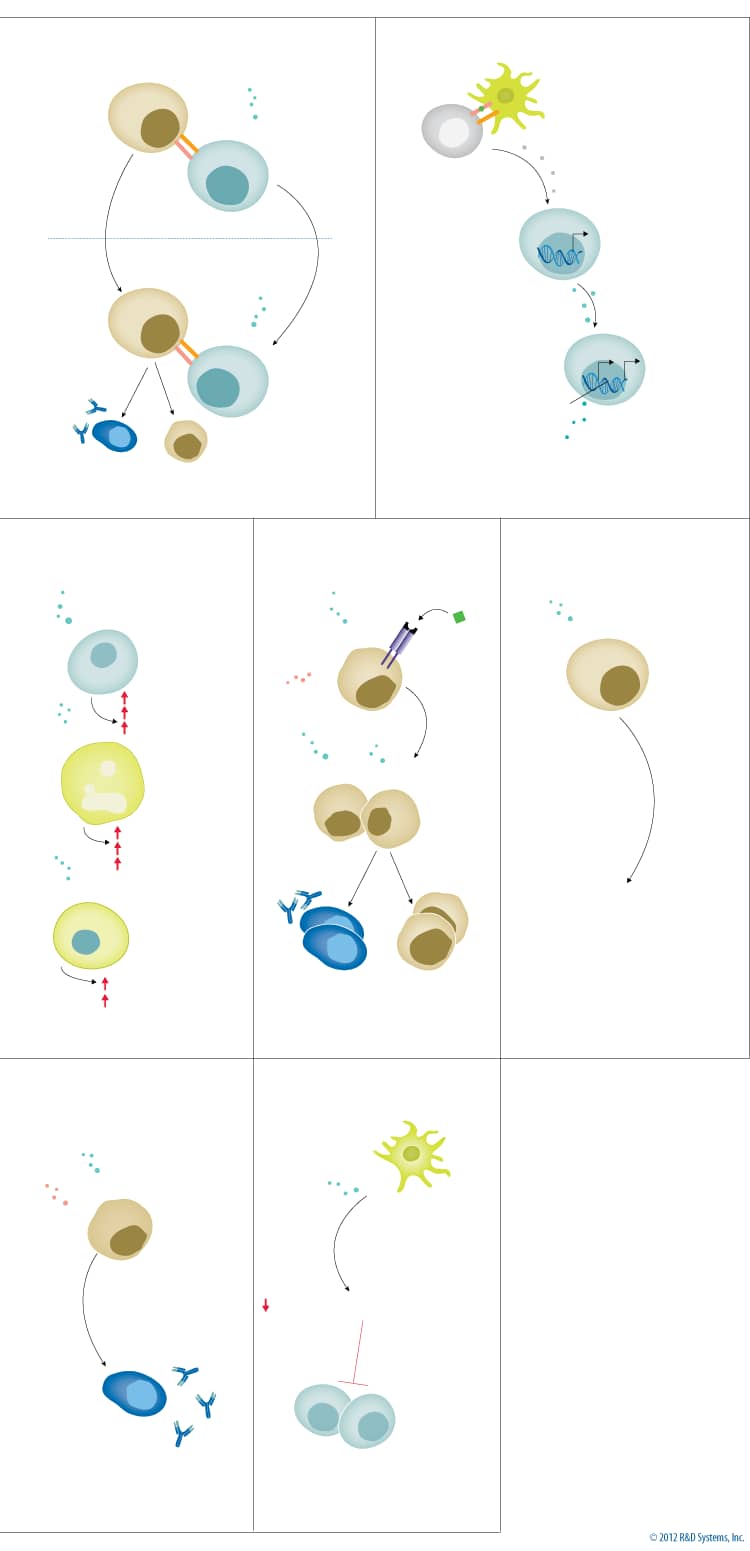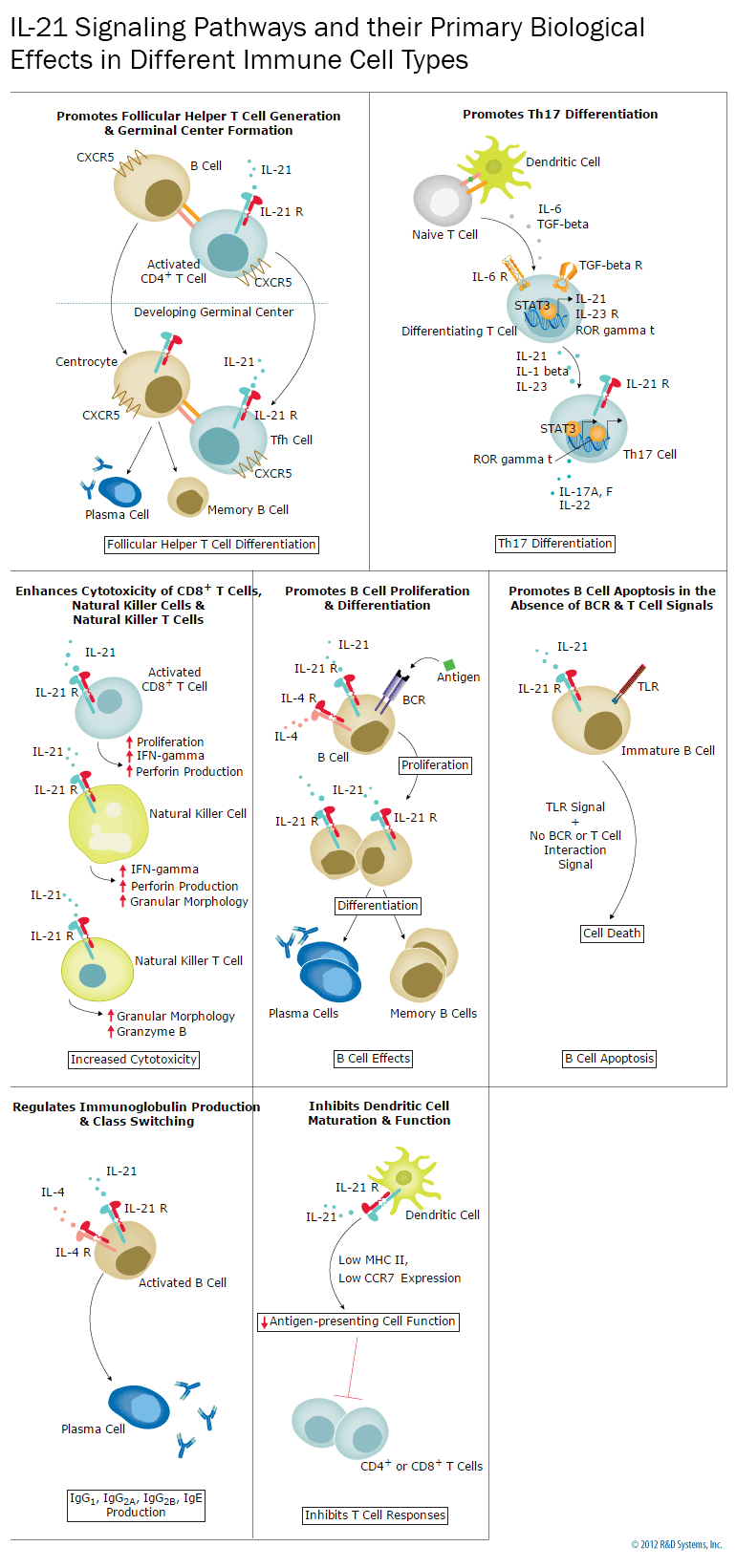IL-21 Signaling Pathways and their Primary Biological Effects in Different Immune Cell Types
Click on one of the links shown in the Explore Pathways box below to see either the IL-21 signaling pathways or information related to one of the other common cytokine receptor gamma-chain family members.
& Germinal Center Formation
& Germinal Center Formation
CD4+ T Cell
CD4+ T Cell
Follicular Helper T Cell Differentiation
Follicular Helper T Cell Differentiation
Th17 Differentiation
Th17 Differentiation
Natural Killer Cells &
Natural Killer T Cells
Natural Killer Cells &
Natural Killer T Cells
CD8+ T Cell
CD8+ T Cell
Increased Cytotoxicity
Increased Cytotoxicity
& Differentiation
& Differentiation
Proliferation
Proliferation
Differentiation
Differentiation
B Cell Effects
B Cell Effects
Absence of BCR & T Cell Signals
Absence of BCR & T Cell Signals
+
No BCR or T Cell
Interaction
Signal
+
No BCR or T Cell
Interaction
Signal
Cell Death
Cell Death
B Cell Apoptosis
B Cell Apoptosis
& Class Switching
& Class Switching
IgG1, IgG2A, IgG2B, IgE
Production
IgG1, IgG2A, IgG2B, IgE
Production
Maturation & Function
Maturation & Function
Antigen-presenting Cell Function
Antigen-presenting Cell Function
Inhibits T Cell Responses
Inhibits T Cell Responses

Overview of IL-21 Signaling and its Primary Biological Effects in Different Immune Cell Types
Interleukin-21 (IL-21) is the most recently described cytokine belonging to the common cytokine receptor gamma-chain family. Like other common gamma chain family members, IL-21 is a four alpha-helix bundle type I cytokine. It signals through a receptor complex consisting of IL-21 R and common gamma-chain/IL-2 R gamma. IL-21 is produced primarily by CD4+ T cells and natural killer T (NKT) cells and has a broad range of effects on a number of different cell types. IL-21 signaling in CD4+ T cells is required for both Th17 differentiation and the generation of T follicular helper (Tfh) cells, which support B cell differentiation and antibody production in germinal centers. IL-21 also directly regulates B cell proliferation and apoptosis in a context-dependent manner and can promote immunoglobulin production and isotype class switching. In addition, IL-21 signaling enhances the cytotoxicity of CD8+ T cells, natural killer cells, and NKT cells.
To learn more, please visit our Common gamma Chain Receptor Family Research Area.
Get Print Copy of this Pathway
View IL-21 Signaling Pathways and their Primary Biological Effects in Different Immune Cell Types Image

